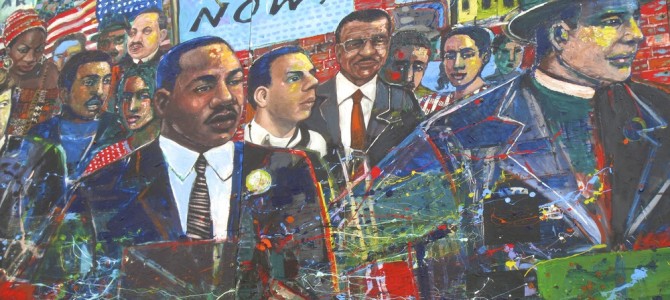For many Americans, Martin Luther King Jr. Day means a day off from work. The fact that we celebrate one of the most famous African-Americans with a day not working is a head-scratching tribute when one considers that the unemployment rate among African-Americans is about double that of white workers.
A day spent not working is a bad tribute. We should be doing what we can to give more opportunities for African-Americans, and all Americans, to lead productive lives. Unfortunately, a big part of the problem preventing work in the United States isn’t that we lack a specific law or regulation, it is that we have enacted too many laws that have terrible unintended consequences. These government policies hurt all Americans, but inflict a disproportionate amount of pain on minorities. In honor of Martin Luther King Jr., here are two suggested law changes for MLK Day.
End the Leading Cause of Youth Unemployment
First, let’s reduce or eliminate the leading cause of unemployment for young adults: the minimum wage. The unemployment rate for teenagers is high (about 16 percent), and it is especially high for African-American teenagers (about 28 percent). A high minimum wage prompts many firms to hire fewer teenagers—or none at all. Companies will only hire a teenager if they think that teenager will increase their profits, and a higher minimum wage means less profit. Often, companies find it less expensive to replace workers with machinery, and if you have seen touchscreens at grocery stores or restaurants, you are familiar with how easily machinery can replace young workers if lawmakers enact and enforce high minimum wages.
With the most recent increase in the minimum wage coinciding with the start of the Great Recession, unemployment rates skyrocketed for teenagers overall, but particularly for young African-Americans. The consequences of the minimum wage are devastating and long-lasting. The inability to get a job as a teenager prevents him or her from acquiring useful on-the-job training that helps workers obtain their next, higher-paying job. Because subsequent jobs are earned in part based on skills developed in previous jobs, a minimum wage will have lifelong negative consequences for many of today’s youth.
A rough definition of the “American Dream” is that any American can rise to a better economic situation by working hard throughout his or her life. The minimum wage is stifling the American Dream for many Americans, but more harshly affects African-Americans. Those who seek to expand opportunities for all Americans should work to abolish the minimum wage.
End the War on Drugs
Second, the United States should end the war on drugs. Far more African-Americans are imprisoned for drug crimes than those in other demographic groups. Many of those in prison are there because of victimless crimes, i.e., crimes where, other than the drugs being sold, no other crime was committed. Beyond imprisoning otherwise law-abiding citizens, we spend tens of billions of dollars annually on their imprisonment and to pay for the officials who enforce these laws.
It is not just the imprisonment that is a problem. The illegal drug markets the war on drugs creates cause other problems. Because drugs are illegal, they are not sold in a neighborhood store like cigarettes or alcohol. They are instead sold by drug dealers through illegal markets. Many scholars have noted that when children grow up in an area where legitimate jobs are scarce (partly due to government policies like the minimum wage), dealing drugs seems like a viable career path. Consequently, this can lead children—who otherwise might have grown up to be successful doctors, scientists, or other professionals—into prison.
When ways to honor Martin Luther King Jr. are mentioned, many people this year will bring up Ferguson, engage in yet another round of police-bashing, recommend engaging in (hopefully peaceful) protests, and try to enact new laws. But this is not the best way to help Americans. We should encourage our lawmakers to eliminate laws that cause pain and suffering. While these two proposed changes will not be an instant fix for all of our nation’s problems, they would improve the outlook for millions of people—not just African-Americans, but all Americans.









